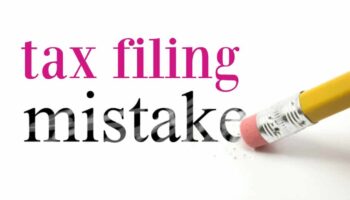As a business owner, you’re likely to face the decision of whether to incorporate once your business becomes successful. You’ll need to base your decision on a number of factors, both commercial and tax related.
Incorporation can bring a number of commercial benefits, such as:
- The potential for liability is limited to assets owned by the corporation. However, corporate business owners often have to provide personal guarantees for business loans, extending the risk beyond business assets.
- Because an incorporated business is a separate legal entity distinct from its owner, it can continue after the owner’s death, facilitating business succession.
Offsetting the commercial benefits are the commercial costs, including the legal and accounting fees associated with setting up the corporation and ongoing maintenance and compliance fees, such as the costs of preparing minutes, financial statements and tax returns.
The primary tax advantage of incorporation, compared to earning business income personally and paying tax at the top personal marginal rate, is income tax deferral. This deferral results because Canadian-controlled private corporations pay a reduced tax rate, in general, on the first $500,000 of active business earnings. The rate ranges from approximately 11% to 19%, depending on the province of operation. This amounts to a potential annual tax deferral of approximately $125,000 to $170,000 on this first $500,000 of earnings, depending on the province of operation and residence of the owner.
Federally, this corporate rate reduction is eroded for larger corporations with capital in excess of $10 million. Most provinces have a similar “clawback” provision.
The deferred tax will normally be eliminated when the corporate earnings are paid to the owner by way of dividends. However, the longer those earnings remain in the corporation, the greater the benefit associated with the tax deferral.
Other tax advantages of incorporating a proprietorship include:
- Availability of the capital gains exemption on the sale of shares of a qualified small-business corporation
- Flexibility in the character and timing of remuneration
- Possibility of income splitting by having family members subscribe for shares of the corporation and receive dividends. However, this type of income splitting is not as effective with minor children because the dividends and capital gains they receive from private corporations are subject to the top marginal personal tax rate (this is known as the “kiddie tax”)
- Reducing the potential tax cost associated with the deemed disposition of assets on the owner’s death by effecting an estate freeze
- Reducing the potential probate fees payable on the owner’s estate at death
There are also some drawbacks to operating a business in a corporation, including:
- Trapped losses. If the business is operating at a loss, the owners cannot apply the loss against their other sources of income. Such losses can only be carried back three years or forward 20 years to be applied against other income of the corporation for those years. This is often why start-up operations often start out as unincorporated businesses and are incorporated once they begin generating profits.
- The possibility of double taxation on the sale of the business or other disposition of assets. When assets are disposed of by a corporation, any gains realized on the disposition are subject to tax in the corporation. A second level of taxation occurs when the after-tax proceeds of the disposition are distributed to the shareholders in the form of dividends. However, you can eliminate double taxation with proper planning.






